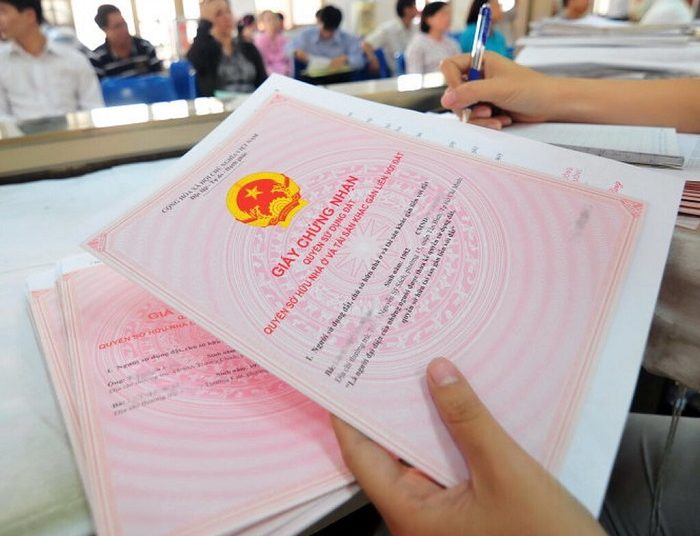Regulations on contracts to borrow land use rights in Vietnam

A property loan contract means an agreement between parties whereby the lender hands over the property to the borrower for use within a period without having to pay, and the borrower must return the property at the end of the loan term or the borrowing purpose achieved. On the other hand, people usually understand land as a kind of asset. So, do a contract to borrow land use rights similar to a contract to borrow a property? In this article, LSX legal firm provide: “Regulations on contracts to borrow land use rights in Vietnam”
Legal grounds
- Land law 2013
- Civil Code 2015
Regulations of the law on contracts to borrow land use rights
Conditions for the exercise of the rights to exchange, transfer, lease, sublease, inherit, donate or mortgage land use rights; to contribute land use rights as capital
Land users may exercise the rights to exchange, transfer, lease, sublease, inherit, donate or mortgage land use rights and contribute land use rights as the capital when meeting the following conditions:
- Firstly, having the certificate, except for the case prescribed in Clause 3, Article 186 and the case of receiving inheritance prescribed in Clause 1, Article 168 of the Land Law 2013.
- Secondly, the land is dispute-free.
- Thirdly, the land use rights are not distrained to secure judgment enforcement.
- Fourthly, within the land use term.
Additionally, when exercising the rights to exchange, transfer, lease, sublease, inherit, donate or mortgage land use rights and contribute land use rights as capital, land users must also be eligible under Articles 189, 190, 191, 192, 193, and 194 of the Land Law 2013.
The exchange, transfer, lease, sublease, inheritance, donation, or mortgage of land use rights or contribution of land use rights as capital must be registered with the land registration agency and will take effect from the time of registration in the cadastral book.
The law does not mention the case of lending land use rights requiring a land use right certificate. In general, the law does not prohibit it, so the parties have the right to agree on a contract to lend land use rights. However, the contract must satisfy the condition mentioned above.
Make a contract to borrow land use rights
The establishment of a contract to borrow land use rights of the parties shall comply with the provisions of the Civil Code 2015.
Accordingly, the Civil Code stipulated in Article 494 on property loan contracts:
Article 494. Contracts for borrowing property
Contract for borrowing property means an agreement between parties whereby a lender delivers property to a borrower for use free of charge for a period of time and the borrower returns the property at the end of the period of time or when the purpose of the borrowing has been achieved.
For contracts to borrow land use rights, the Civil Code stipulates that they must be made in writing in an appropriate form. Also, the contract has to show the rights and obligations of the borrower and the property lender in accordance with the provisions of the Civil Code 2015.
On the other hand, the borrower of the property as the land use right must use the land in accordance with the approved and effective planning and use plan. At the same time, land use must also ensure the right use purpose, right boundary, correct regulations on depth in the ground and height in the air, protect public works in the ground and comply with regulations of relevant laws; take measures to protect the land.
Contents of the contract to borrow land use rights
Rights and Obligations
The Civil Code 2015 provides general provisions on the common rights and obligations of the borrower and the lender of the property. Therefore, the agreement between the parties plays the most important role in determining the guarantee of the legitimate rights and interests of the parties.
Obligation of borrowers of property
- Firstly, take care of and preserve the borrowed property and not change the condition thereof at the volition of the borrower. The borrower must repair any normal damage to the property.
- Secondly, do not on-lend the property to any other person without the consent of the lender.
- Thirdly, return the borrowed property on the due date. If there is no agreement on the time for returning the property, the borrower must return the property immediately after the purpose of the borrowing has been achieved.
- Fourthly, compensate for damage where the borrower causes damage to or loss of the borrowed property.
- Lastly, the borrower must bear the risk in relation to the borrowed property during the period of late return.
Rights of borrowers of property
- Firstly, use the borrowed property strictly in accordance with its utility and agreed purpose.
- Secondly, require the lender to reimburse reasonable expenses incurred in carrying out repairs or improvements to the borrowed property which increase its value if so agreed.
- Thirdly, do not bear liability for normal wear and tear of the borrowed property.
Obligations of lenders of property
- Firstly, provide necessary information on the use of the property and its defects, if any.
- Secondly, reimburse the borrower for expenses incurred in carrying out repairs or improvements to the borrowed property which increase its value if so agreed.
- Thirdly, where the lender knows but fails to notify the borrower of a defect in the property which results in damage to the borrower, to compensate the borrower for such damage, except where the borrower knows or should know of such defect.
Rights of lenders of property
- Firstly, reclaim the property immediately after the borrower has achieved its purpose where there is no agreement on the borrowing period. If the lender suddenly and urgently needs to use the borrowed property, the lender may reclaim it upon giving reasonable prior notice to the borrower, even if the borrower has not yet achieved its purpose.
- Secondly, reclaim the property where the borrower fails to use it strictly in accordance with the agreed purpose, utility, or method or where the borrower on-lends the property without the consent of the lender.
- Thirdly, remand compensation for damage to the property caused by the borrower.
Depends on agreements between parties
The contract to borrow a property that is a land use right does not have to include all of the above. Depending on the agreement between the parties, they may remove one or some contents as well as add information to ensure the unification of the will to enter into the contract between the parties.
Legal service of LSX Legal Firm
LSX legal firm provides legal services to clients in various legal areas. To make your case convenient, LSX will perform:
- Legal advice related to new regulations;
- Representing in drafting and editing documents;
- We commit the papers to be valid, and legal for use in all cases;
- Represent to submit documents, receive results, and hand them over to customers.
With a team of experienced, reputable, and professional consultants; The firm is always ready to support and work with clients to solve legal difficulties.
Furthermore, using our service, you do not need to do the paperwork yourself; We guarantee to help you prepare documents effectively and legally.
Also, you will not have to waste time preparing the application, submitting application, or receiving results. At those stages, we will help you do it smoothly.
After all, LSX provides the service with the desire that customers can experience it the best way. Additionally, we guarantee the cost to be the most suitable and economical for customers.
Related articles
- The fees to establish a Joint-stock company in Vietnam?
- What accountants need to do in a newly established company in Vietnam?
- Advantages and disadvantages of the partner company in Vietnam
Related questions
Households and individuals using agricultural land which is allocated by the State or obtained through exchange, acquisition of land use rights, inheritance, donation of lawful land use rights from other land users, may only exchange these agricultural land use rights to other households and individuals in the same commune, ward or township to facilitate agricultural production, and do not have to pay income tax incurred from the exchange of land use rights and registration fee.
Land use plan means the division of a master plan on land use according to periods of time for implementation during the period of the master plan on land use.
Certificate of land use rights and ownership of houses and other land-attached assets is a legal certificate in which the State certifies the lawful land use rights and ownership of houses and land-attached assets of the person who has land use rights and ownership of houses and land-attached assets.
Contact LSX
Finally, hope this article is useful for you to answer the question about “Regulations on contracts to borrow land use rights in Vietnam”. If you need any further information, please contact LSX Law firm: +84846175333 or Email: [email protected]
Conclusion: So the above is Regulations on contracts to borrow land use rights in Vietnam. Hopefully with this article can help you in life, please always follow and read our good articles on the website: lsxlawfirm.com




